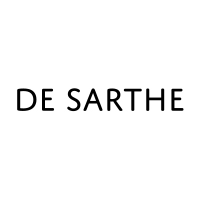Up Close: Lo Lai Lai Natalie
By Pamela Wong
Full text also available in Chinese.



LO LAI LAI NATALIE, A Messenger – Passerby in Our Battlefields, 2022, stills from two-channel video: 28 min 5 sec. Courtesy the artist; ifva; and Hong Kong Arts Centre.
A gray bush chat perched on a tree branch quietly gazes at its surrounding in a stern manner. Where did it come from? Where will it go? We ask these questions when we encounter a bird, but as it flutters its wings and flies away without hesitation, we are left to question ourselves: Why are we here? Where should we go next?
This is the ethos captured in Lo Lai Lai Natalie’s double-channel video, A Messenger – Passerby in Our Battlefields (2022–23), produced at a time when the people of Hong Kong are split between the decision to leave or to stay, amid a new emigration wave. The video visually leads us into the mountains of the New Territories visually, with closeups on the greenery, and audibly, by blending ambient bird chirps with the rippling streams. At times, perhaps as a hint at their uncertain future, the camera wobbles as it captures the cranes taking off or the local feral pigeons resting on a roof. This footage of departure and stillness is accompanied by two thoughtful voices who calmly recollect their observations, though it is difficult to tell whether they are storytellers, birdwatchers, or simply passers-by.
One of the narrators mentions the Dutch word vliegend, which refers to “a state of never descending upon the Earth” and immediately recalls the hopelessly romantic expression of “a bird without feet” from the Wong Kar-wai film Days of Being Wild (1990), produced during the city’s last emigration wave. Yet the next line in Lo’s video dismisses the lingering impression I had of the 1990 film: “No bird is in a state of vliegend. They invariably have [to] make contact with the ground to search for food, to propagate and breed.” The camera then follows the birds landing on a branch, a power line, or a farm. Instead of circulating the sentimental, passive image imposed on the diasporic body, Lo acknowledges their agency in every choice they make by focusing on both the migratory and resident birds’ necessary contact with the land and will to survive. Even the lost birds, as noted by Lo, “persist in remaining and covertly push for change.”







